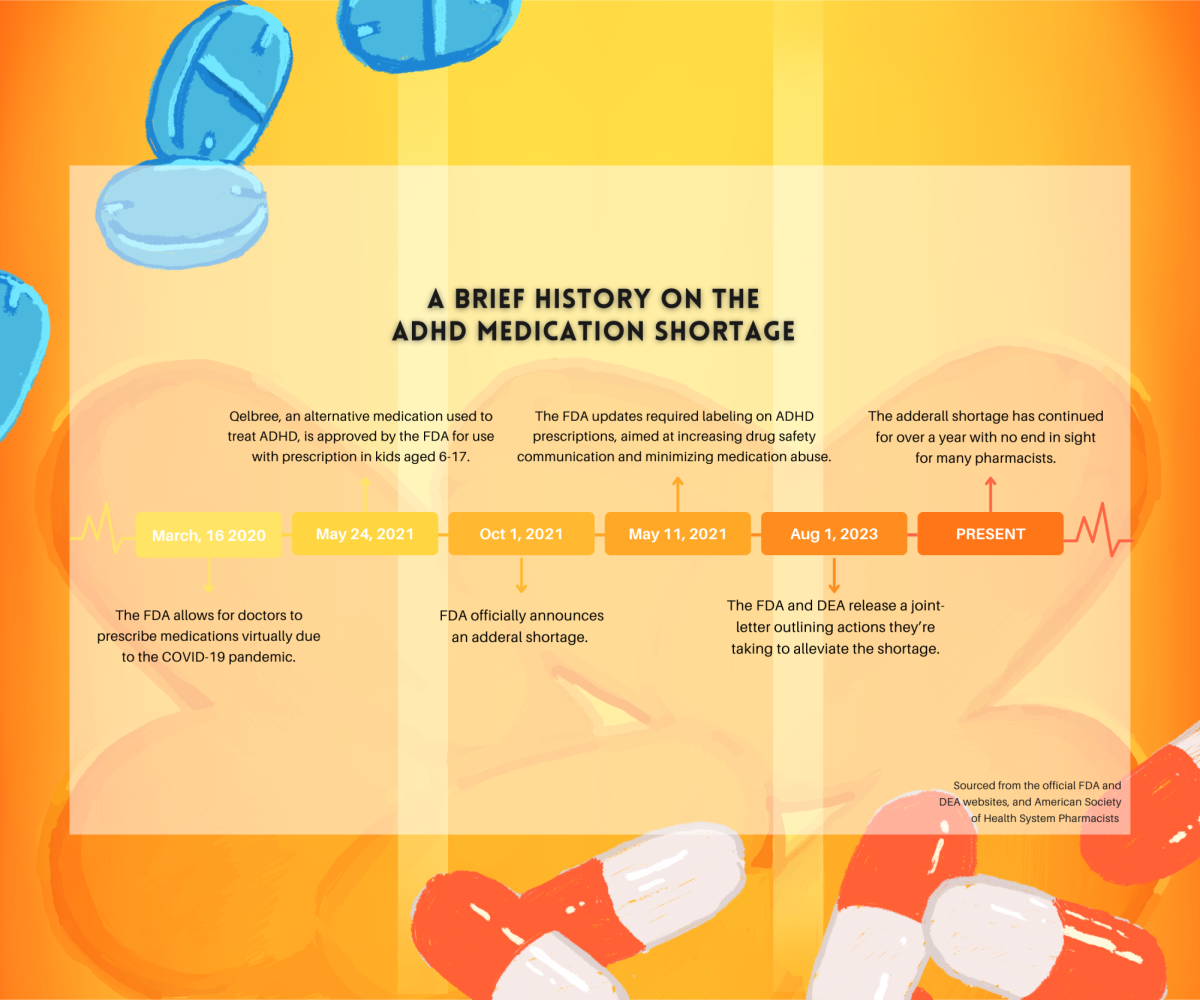Noise everywhere, the clacking of the keyboards, students in class whispering, the sound of the pencil scratching on the paper, even the sound of breathing can be deafening and incredibly distracting to some students.
Attention deficit hyperactivity disorder — better known as ADHD — requires students to have many resources in order for them to be successful at school. One available resource is a 504 plan, which allows different accommodations that best suit their learning style to maximize success. Another possible resource for students with ADHD is medication tailored to their specific diagnosis.
Coming out of the COVID-19 pandemic,, there was an increase in ADHD diagnoses leading to a shortage of medication. The decrease in the availability led to a stressful time for a lot of students and their families.
Junior Eille Landek was diagnosed before their freshman year started. During this after-pandemic period where medication was very hard to get a hold of, they had been lucky enough to be able to get their medication, but not without a lot of difficulty.
“[It] was definitely very stressful for my mom,” Landek said. “She’s been constantly on the phone with so many different pharmacies just trying to figure out who has [Adderall], and when or how she’s able to get it.”
Landek had a lot of trouble during this time, having to ration their medication and think about what days they needed to focus the most. When they aren’t on their medication they get really distracted and in the case they can’t take their medication for any reason they have multiple different plans in order to be the most successful in school.
“I also have these booster pills,” Landek said. “It’s basically Adderall but [cut in] in half. [I haven’t] used them since freshman year, but I still have them, just in case something happens.”
Landek also has a 504 plan which becomes very helpful, in making sure that they have modifications suited to their specific symptoms if they can’t get a hold of their medication.
“I am able to just leave the classroom like no questions asked[in case of sensory overload],” Landek said. “I can just take a few minutes to myself. I’m allowed to use my headphones in class because they’re noise canceling, so I can just block out any extra sound.”
Junior Lucille Buchheit was also in a similar situation as Landek, being diagnosed before freshman year and also having trouble with getting her medication, but she had actually gone multiple days without her medication because she couldn’t get it.
When Buhheit didn’t have her medication, she had a hard time focusing on school, and was very fatigued.Like Landek, she also has a 504 tailored to her specific symptoms.
While on the other hand freshman Noah Garras who had been diagnosed pretty recently didn’t have trouble getting hold of his medication. The shortage was primarily focused on the period after the pandemic because of the increase of people being diagnosed.
Since Garras was diagnosed fairly recently the shortage didn’t affect him much, even the aftermath of the medication switches and changes didn’t affect him.
Though the situation for Garras, Buhheit and Landek being different, all three agreed that the most helpful accommodation was having headphones because all of those noises causes overstimulation, which is one of the biggest distractions for all three of them.
The shortage had created a lot of stress for students and their families, with time over the phone and stress about if they would be able to get their next fill of their prescription to deal with actual changes in their medication and having to learn to cope and communicate with teachers about the difficulty that they are having.
“My mom had to be constantly calling and like driving all around to just find any of the medication and at that point I was basically just so out [of it] so during [the shortage] I’d be probably going a few days [without my medication] which is way too many [days], but it lasted for the shortage [and]it’s still kind of going on,” Buhheit said.




